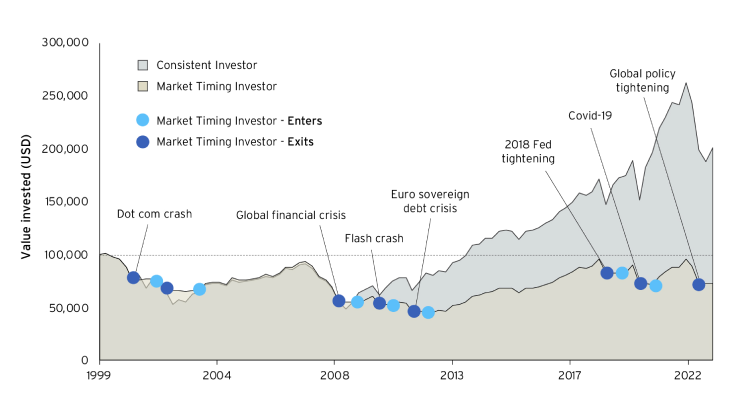
An old Japanese proverb, ‘The third generation ruins the house’ encapsulates a long-established pattern of great wealth failing to endure for multiple generations.
Latter day studies confirm the challenge, with various sources citing up to 70% of wealthy families dissipating their inheritance by the second generation and 90% by the third. Such an outcome is not inescapable, however. Some of the foremost family dynasties have demonstrated that significant wealth can be sustained and indeed increased over centuries.
These families typically exhibit certain values and adhere to sound investment practices. They prepare their successors to become responsible stewards of family businesses and other sources of wealth. They establish wealth plans, trusts, and family offices to protect, grow and oversee their assets. They adapt and evolve their businesses and operate as meritocracies.
When it comes to their investment portfolios, they typically follow a thoughtful long-term investment plan or ‘strategic asset allocation’ (SAA).
This is the process of determining an appropriate mix of asset classes from around the world and then adjusting it over time to reflect changing conditions. A vital element of SAA is maintaining fully-invested portfolios throughout market cycles – rather than switching between risk assets and cash in an effort to ride uptrends and sidestep downtrends.
Fortune favours the brave
Sticking to a long-term investment plan may be easier said than done, however, especially in volatile periods. It can be tempting to wait in liquid assets until markets seem to have fallen to a low point. In fact, many investors keep up to 30% of their portfolio in cash for this very reason.
However, history shows that sitting on the sidelines can lead to long-term underperformance compared to remaining fully invested.
Take the hypothetical performance of a buy-and-hold investor versus a market timer who each invested $100,000 in the S&P 500 index on 31 December 1999, near the peak of the dot-com bubble.
The buy-and-hold investor maintains their position throughout. Whereas the market timer switches from equities entirely to cash equivalents – in the form of three-month Treasury bills – whenever the S&P 500 index falls by 10% or more during a quarter. They re-enter only after two consecutive quarters of positive returns.
While the market timer might feel more in control, the forgone returns from getting out and back in too late add up over time. This leads to underperformance, hindering the preservation and growth of wealth for future generations.
Indeed, from the chart, it is clear that the consistent investor would have outperformed the market timer by 175% between 31 December 1999 and 31 December 2022.

Source: Citi Private Bank Global Investment Lab using Bloomberg. Quarterly data 31 Dec 1999 to 31 Dec 2022. All performance is shown after Inflation, calculated by deducting the US inflation rate from Equities returns. The consistent investor is invested into Equities throughout. Market timing investor begins invested into Equities but switches into Cash if Equities fall by 10% or more in a quarter and invests back into Equities only after 2 successive quarters of positive performance by Equities. Equities is the S&P 500 net total return index, which assumes dividends are reinvested once withholding taxes are deducted. Cash is the US generic Government 3-month yield index. Inflation is the US CPI Urban Consumers index.
This lesson is no less relevant today. In 2023, investors who have remained invested despite confusing market conditions have earned solid fixed income returns and an 11% rise in global equities as of 10 June 2023. On the back of this performance, investors on the sidelines are wondering whether they have missed their chance.
A helping hand
Citi Private Bank provides detailed guidance to our ultra-high-net-worth clients for preserving wealth.
To do so, we provide tactical adjustments to long-term allocations, also highlighting important multi-year themes such as disruptive innovations, demographic shifts and the interplay of geopolitical forces.
Our SAA methodology – which we use to establish long-term investment plans – is called Adaptive Valuation Strategies (AVS).
AVS is objective, systematic and grounded in the principles established through academic research and proven in practice. These include diversification by asset class, geography, sector and other factors, as well as staying fully invested.

Taking a ten-year view, AVS estimates returns for each asset class based on current valuations. It then typically suggests greater allocations to asset classes with higher return estimates and lesser allocations to those with lower return estimates.
By adhering to an AVS allocation over time – while rebalancing regularly and making tactical adjustments – investors stand a better chance of overcoming the three-generation curse of ‘shirtsleeves to shirtsleeves.’
Citi Private Bank are here to support you throughout this process and help your family seek to grow its wealth across generations, creating an enduring legacy for those who succeed you.
__
S&P 500 Index is a capitalization-weighted index that includes a representative sample of 500 leading companies in leading industries of the US economy. Although the S&P 500 focuses on the large-cap segment of the market, with over 80% coverage of US equities, it is also an ideal proxy for the total market.
Cash is represented by US 3-month Government Bond TR, measuring the US dollar-denominated active 3-Month, fixed-rate, nominal debt issues by the US Treasury.
US CPI Urban Consumers index is a widely-used economic indicator that tracks the average price of a basket of goods or services used by the typical consumer, including housing, transportation, clothing and food. The term urban in the index refers to areas around any city or town with a population of at least 10,000. It’s published regularly by various government statistical agencies and used to gauge inflation or deflation.
INVESTMENT PRODUCTS: NOT FDIC INSURED. NOT CDIC INSURED. NOT GOVERNMENT INSURED. NO BANK GUARANTEE. MAY LOSE VALUE.
Views, opinions and estimates expressed herein may differ from the opinions expressed by other Citi businesses or affiliates. The information contained herein is not intended to be an exhaustive discussion of the concepts mentioned herein or tax or legal advice. Readers interested in the concepts should consult their tax, legal, or other advisors. You can read our full disclaimer here.


